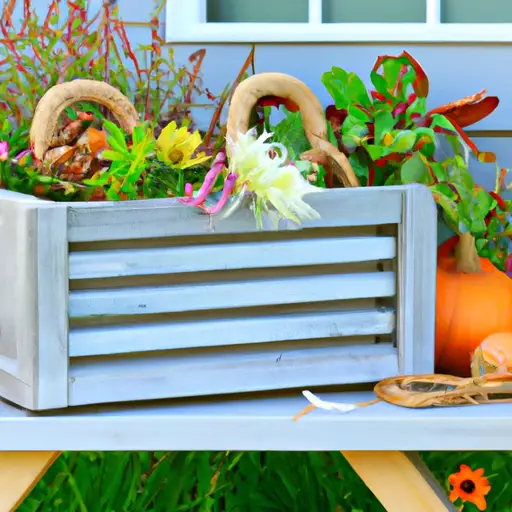Container gardening is a fantastic way for beginners to experience the joys of gardening without the need for a large outdoor space. Whether you live in an apartment, have limited yard space, or simply want to add some greenery to your home, container gardening can be a perfect solution. With a little bit of knowledge and creativity, anyone can create a beautiful and thriving garden using containers.
First and foremost, it’s important to choose the right containers for your plants. The size of the container will depend on the type of plant you wish to grow. For small plants like herbs or flowers, smaller pots can be used. However, if you plan on growing vegetables or larger plants like shrubs and trees, larger containers are necessary.
Once you have chosen your containers, it’s time to select the right soil mix. Ordinary garden soil is not ideal for container gardening as it can become compacted and drain poorly. Instead, opt for high-quality potting soil that is lightweight and well-draining. You can find a variety of potting soils at your local gardening store.
Now it’s time to decide what you would like to grow in your containers. Herbs such as basil, thyme, and parsley are great options for beginners as they are easy to grow and require minimal maintenance. Additionally, they can be used in cooking which adds an extra benefit.
If vegetables excite you more than herbs, consider growing tomatoes, peppers, or lettuce in your containers. These crops do well in pots and provide a bountiful harvest with proper care.
Once you have decided what to grow, it’s essential to provide adequate sunlight for your plants. Most edible plants require at least six hours of direct sunlight per day while some flowering plants may need more or less depending on their specific needs.
Watering is another crucial aspect that requires attention in container gardening. Generally speaking, container gardens dry out more quickly than traditional gardens due to their limited soil volume. Therefore, it’s important to check your plants regularly and water them when the top inch of soil feels dry. Be mindful not to overwater as it can lead to root rot and other issues.
Feeding your plants with nutrients is equally important for their overall health and productivity. Use a balanced, slow-release fertilizer or organic compost to provide your plants with the essential nutrients they need. Follow the instructions on the packaging or consult a gardening expert for guidance.
Lastly, don’t forget to regularly monitor your container garden for any pests or diseases. Inspect your plants for signs of insect damage or fungal infections, and take immediate action if necessary. This may involve removing affected leaves, applying organic insecticides, or using other prevention methods.
Container gardening is an enjoyable and rewarding activity that can be pursued by anyone, regardless of their gardening experience or available space. It allows you to bring nature indoors or enhance your outdoor living spaces with lush greenery. So, grab some containers, potting soil, seeds or seedlings, and get started on your beginner’s journey into container gardening!













